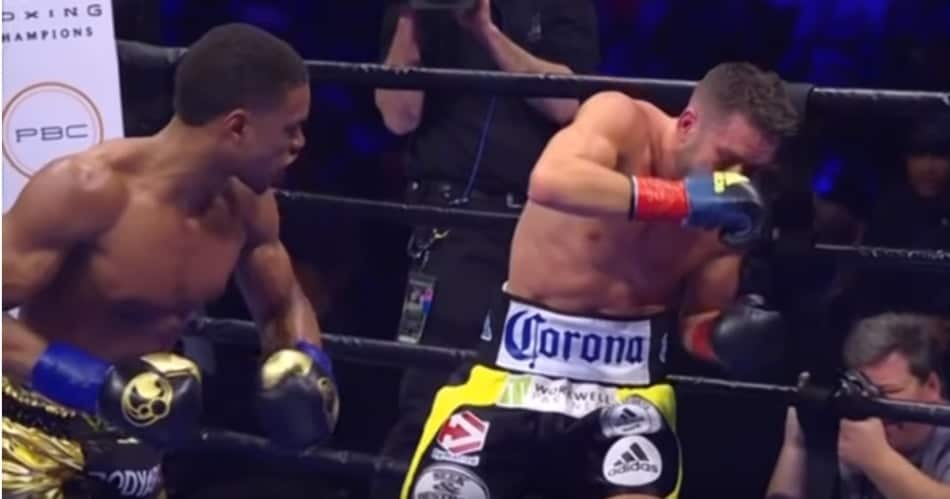
All professional boxers today have to spend some time as an amateur. How long it takes them to become a professional boxer depends upon many factors so we took a look at some of the top professionals in history to answer this question.
How long does it take to become a professional boxer? The average number of amateur fights some of the top boxers in history had is approximately 118 fights at an average age of just over 20 years old at their professional debut.
If we assume the average boxer started their amateur careers at 16, then they had 118 fights in just over 4 years to reach the professional level.
When looking at averages, it is important to understand nuance to all of the numbers. There are many factors that affect a boxer’s length of amateur career, including:
- Their immediate needs for money.
- How young they began practicing and how much natural talent they had.
- What country they grew up in.
- What era of boxing they participated in.
The data we looked at was also only considered if the boxer debuted after 1960. Pre-1960 boxers didn’t have much for amateur careers (or data) because amateur fights, leagues, tournaments weren’t as structured as they are today, e.g. the Olympics.
Outliers in the Data
Any average data set will have some outliers, so let’s take a look at some very short and some very long amateur careers.
- Sven Ottke went 34-0 in his professional career as a super-middleweight in the late ‘90s and early ‘00s. However, he debuted only a few months before his 30th birthday after an amateur career lasting 308 fights (256-47-5).
- Oscar De La Hoya debuted professionally at the young age of 19 but still managed to rack up a record of 223-5 as an amateur. He did much of his amateur fighting at the US National Championships and Olympic games.
- Julio César Chávez debuted professionally at the age of 17 with only 15 (14-1) amateur fights since he started boxing at 16. He grew up poor and had an immediate need for money to support his family. He honed his skills in the professional ring over a career record of 107-6-2.
- Roberto Durán debuted professionally at the age of 16 with only 16 (13-3) amateur fights. He also grew up poor and had a need to support his family.
Each boxer ultimately has the decision to become a professional and must weigh the many factors in their lives that allow them to make that decision.
Immediate Need for Money
The most prominent theme among the boxers who started their careers early is money – money needed to support themselves and their families and so they could get out of poverty.
This article on thefamouspeople.com describes how Julio César Chávez grew up in Sonora, Mexico where his father worked for the railroad. His family, consisting of his parents and 9 siblings, lived in an abandoned railroad car.
Chávez lived in poverty so he began boxing at 16 as an amateur and turned pro about a year later to help support his family.
According to biography.com, Roberto Durán was born 11 years before Chávez but followed a similar path. Durán grew up in the slums of El Chorrillo, Panama and had to hustle as a child to make a living.
He became a professional at the age of 16 and never turned back to his life of poverty.
Money is a common theme among boxers who became professionals at an early age. These fighters had natural talent, but instead of practicing in amateur bouts, they had to hone their craft in the professional ring and earn their living.
Which brings us to the next point.
Starting age and Talent
Becoming a professional boxer takes a tremendous amount of work and focus. However, boxers who put in huge amounts of work may never become professionals if they don’t have the talent.
Starting early can also be as important as working hard because a fighter can reach the professional level early and have long careers (barring any major injuries).
To discuss Roberto Durán again, he started practicing in the gym at age 8 as an escape from his life in the slums. He was motivated to go there by his economic situation, but people quickly learned of his talent.
He was ready to be a professional at 16 and talented enough to do so. He went 31-0 in his first 31 fights and had a long and successful career with a record of 103-16 over 33 years.
Another example of young talent is Wilfred Benitez who began his career at 15. He was remarkably talented and grew up in a boxing family. His father was a trainer and brothers were successful boxers as well.
It is highly uncommon to start boxing as young as Durán and Benitez did, however, starting early is important to reaching success at an early age.
Huge amounts of natural talent help as well.
The country they Grew up in
Your country of origin can mean a lot of things to an aspiring professional boxer. The local rules and regulations vary between countries and local economics can push a poor young kid to become professional simply because of money.
We already discussed Durán and Chávez who grew up in poor neighborhoods in Latin American countries, so to contrast that, we can look at Oscar De La Hoya who was born in Los Angeles California in 1973.
According to biography.com, De La Hoya had a huge amount of talent and grew up in a boxing family that emigrated from Mexico to California before he was born.
In addition to having the talent and a great team around him, De La Hoya had access to some of the best gyms in the world and opportunities to join amateur boxing leagues in the U.S. These resources would propel him to gold medals at the Goodwill Games and Olympic games as well as a Golden Glove title in 1990.
He had the resources and opportunities to pursue a successful career as an amateur before becoming a professional. Not every aspiring boxer has these options.
Eras of Boxing
The era a boxer participated in is another big factor in how long it takes them to go professional.
The boxers analyzed in this article all debuted after 1960. This was done because there weren’t as many amateur opportunities before that time.
The Summer Olympics have held boxing competitions since 1904 and it was the only major amateur opportunity for many years.
Through history:
- The Commonwealth Games first began in the 1930s among (mostly) English-speaking European countries.
- The Pan-American Games were first held in 1951.
- And the Goodwill Games (created as a reaction to political troubles surrounding the Olympic Games) was first held in 1986.
These three competitions (which include boxing, of course) provided increasingly more opportunities for amateurs to compete in the 1900s.
Today, there are many local, regional, and global amateur competitions for any aspiring professional to hone their skills in the ring.
Conclusion
There are a wealth of factors that contribute to the length of time it takes to become a professional boxer. Every boxer’s path to professional success is unique and you will have to find your own way.
You may be above or below the average professional debut age of 20 years old, but it ultimately comes down to a few simple things.
- Your willingness to work hard and how bad you want it.
- How much natural talent you have.
- The team you surround yourself with.
- When YOU decide you are ready to go pro.
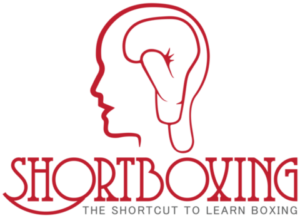
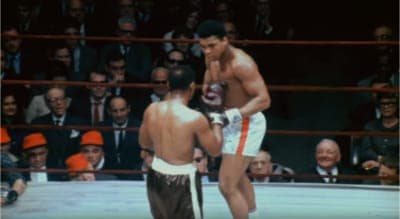
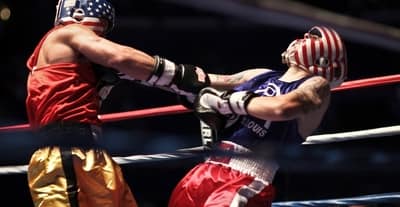
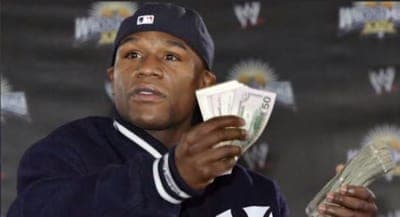
brilliant thanks alot
Hi. Thanks a whole lot for the insight into becoming a pro boxer. I’m 33 now and Black. I’m really motivated to go into boxing and I’ve always had the talent too, but some circumstances beyond my control prevented me so much. But now I strongly believe I should venture into boxing. I’m ready to take whatever work it throws at me. Please what’s you take on this? Advice me. Thanks in advance.
I just sent you an email.
Hii I m from small country Bhutan I have training since 17 years in my home.there is only 1 boxing club in my country.it is far away from my home 180km away. I m poor and no one support me. Please help me to become pro boxer.
Hello
I am 24 I started boxing 4 year ago i train 5 times a week. can I be a successful boxer in the future ?
please help me
thanks!
Contact me on info@shortboxing.com
Hi, I have always had passion for boxing since a young age. I have been training on an off for about 5 years and I am now at 22 considering taking boxing serious. I have had only one bout and plan on getting the number of that higher before the end of the year hopefully. I am ready to train hard an reach my goal insha allah. Please advice me on what you think as I value your opinion an also, whether you think it is too late an age or not to get started 🥊🥊
Many thanks
Contact me on info@shortboxing.com
This is great! Hi I’m 24 and I’m black. I’ve always had interest in boxing but not being able to start due to my academics. I’m not done yet, but will love to start training to become a professional cos I feel I have the talent. I really want to do this. What advise can you give me please? And I will also love to ask some questions. Thanks in advance.
I’m 20 and always been good at wrestling ,how many hours of training does it take per week to go professional boxer
Forget about hours per week, boxing is a lifestyle. You need to eat, sleep, dream, live and die with boxing. When you’re not in the gym your running, when you’re not running your doing abs, legs etc, if you’re not doing workouts you’re stretching, if you’re not stretching your shadowboxing, if you’re not shadowboxing then you’re watching boxing, if you’re not watching boxing you’re sleeping to recover for your next day.
I am 19. Started boxing at 16. Never took it serious until I was 18. Been training since Feb 2020. I’m strong, quick, fit and really determined. My coach said I’ve always had natural athleticism even at 135lbs. What are my chances of making it to boxing coming from nothing?
Help me to become pro boxer.
I will pay u money back when I become pro